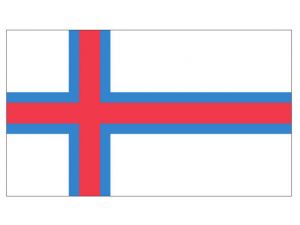Difference between revisions of "Language/Faroese/Grammar/Future-Tense"
m (Quick edit) |
m (Quick edit) |
||
| Line 41: | Line 41: | ||
|description=In this lesson, we will be looking at the future tense in Faroese. We will learn how to form sentences in the future tense and how to use them in everyday conversations. | |description=In this lesson, we will be looking at the future tense in Faroese. We will learn how to form sentences in the future tense and how to use them in everyday conversations. | ||
}} | }} | ||
==Related Lessons== | |||
* [[Language/Faroese/Grammar/Adjectives|Adjectives]] | |||
* [[Language/Faroese/Grammar/Pronouns|Pronouns]] | |||
* [[Language/Faroese/Grammar/Conditional-Mood|Conditional Mood]] | |||
* [[Language/Faroese/Grammar/Negation|Negation]] | |||
* [[Language/Faroese/Grammar/Plurals|Plurals]] | |||
* [[Language/Faroese/Grammar/Questions|Questions]] | |||
{{Faroese-Page-Bottom}} | {{Faroese-Page-Bottom}} | ||
Revision as of 21:36, 25 February 2023
Hi Faroese learners! 😊
In this lesson, we will be looking at the future tense in Faroese. We will learn how to form sentences in the future tense and how to use them in everyday conversations.
The future tense in Faroese is formed by adding the suffix -i to the verb stem. This suffix is added to the infinitive form of the verb. For example, the verb "to write" (skriva) in the future tense would be skrivi.
The future tense can also be formed by using the auxiliary verb vera (to be) with the infinitive form of the verb. For example, the sentence "I will write" would be Eg verði at skriva.
Here are some examples of sentences in the future tense:
| Faroese | Pronunciation | English Translation |
|---|---|---|
| Eg skrivi | /ɛɣ ˈskriːvi/ | I will write |
| Eg verði at lesa | /ɛɣ ˈvɛɹði ɑt ˈleːsa/ | I will read |
| Eg fari at reisa | /ɛɣ ˈfɑɹi ɑt ˈɹeːisa/ | I will travel |
| Eg verði at bakka | /ɛɣ ˈvɛɹði ɑt ˈbɑkːɑ/ | I will bake |
| Eg verði at syngja | /ɛɣ ˈvɛɹði ɑt ˈsʏŋːjɑ/ | I will sing |
It is important to note that the future tense is not used as often in Faroese as it is in English. In Faroese, the present tense is often used to express future actions. For example, the sentence "I will go" would be Eg fari in Faroese, instead of Eg verði at fara.
When talking about future events, the present tense is usually used. For example, the sentence "I am going tomorrow" would be Eg fari á morgun in Faroese.
It is also important to note that the future tense is not used when talking about plans or intentions. For example, the sentence "I am going to go" would be Eg skal fara in Faroese, instead of Eg verði at fara.
In conclusion, the future tense in Faroese is formed by adding the suffix -i to the verb stem or by using the auxiliary verb vera with the infinitive form of the verb. The future tense is not used as often in Faroese as it is in English and it is not used when talking about plans or intentions.
➡ If you have any questions, please ask them in the comments section below.
➡ Feel free to edit this wiki page if you think it can be improved. 😎
